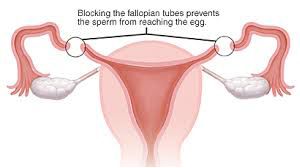Understanding the Rudimentary Uterus: Causes, Symptoms, and Treatment Options
Add to
Share
12,003 views
Report
2 years ago
Description
A rudimentary uterus is a rare reproductive anomaly that affects women. It occurs when the uterus fails to develop properly during fetal development, resulting in a small, underdeveloped uterus that does not function normally. Women with a rudimentary uterus may experience various symptoms, including abdominal pain, abnormal periods, and difficulty conceiving. Understanding the causes, symptoms, and treatment options for a rudimentary uterus is crucial for women affected by this condition. Treatment options may include hormonal therapy, surgery, or assisted reproductive technologies such as in vitro fertilization. It is important to consult with a qualified healthcare provider to determine the best course of treatment for individual cases. This condition can be a significant emotional and physical challenge for women, and seeking support and information from trusted healthcare professionals can be helpful. With proper diagnosis and management, women with a rudimentary uterus can still achieve successful pregnancies and live healthy, fulfilling lives. A rudimentary uterus is a rare congenital abnormality where the uterus is underdeveloped or absent, leading to infertility or difficulty in conceiving. This condition is caused by an incomplete fusion of the two Mullerian ducts during embryonic development. Women with a rudimentary uterus may experience symptoms such as abdominal pain, irregular periods, and difficulty in conceiving. Treatment options include fertility treatments, surgical correction, or surrogacy. Understanding this condition is crucial for women who have difficulty conceiving or have experienced recurrent miscarriages. Proper diagnosis and treatment can greatly increase the chances of a successful pregnancy. If you suspect you may have a rudimentary uterus, it is important to seek medical attention from a qualified healthcare provider. This topic is particularly important for gynecologists, obstetricians, and fertility specialists, as well as women who may be at risk of having a rudimentary uterus. By understanding the causes, symptoms, and treatment options of this condition, healthcare professionals can provide better care to their patients and improve their chances of a successful pregnancy. A rudimentary uterus is a rare congenital condition in which the uterus is underdeveloped or absent, while the ovaries and fallopian tubes are typically normal. It is also known as an infantile uterus or a unicornuate uterus. The condition occurs due to an abnormality in the development of the Müllerian ducts during fetal development. Symptoms of a rudimentary uterus may include abnormal menstrual cycles, infertility, and recurrent miscarriages. In some cases, there may be no symptoms at all. Diagnosis typically involves a physical exam, imaging tests such as ultrasound, and potentially laparoscopy. Treatment options for a rudimentary uterus depend on the severity of the condition and the individual's specific needs. In cases where there are no symptoms or complications, treatment may not be necessary. However, for those experiencing infertility or recurrent miscarriages, fertility treatments such as in vitro fertilization (IVF) or surgical interventions may be considered. It is important to note that the diagnosis and management of a rudimentary uterus should be done by a qualified medical professional. If you are experiencing any concerning symptoms or have questions about the condition, it is recommended to consult with a healthcare provider.
Similar Videos






